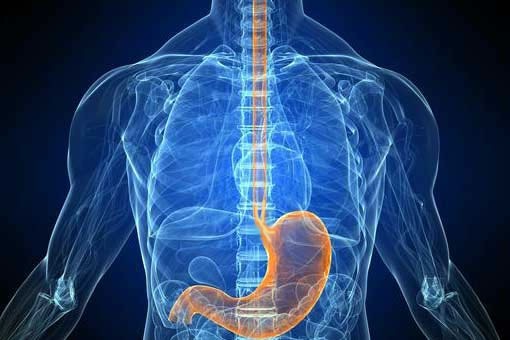Achalasia is a rare digestive disorder in which the muscles in the lower esophagus (esophageal sphincter) fail to relax, making it difficult for food to pass into the stomach. This causes the esophagus to widen, making it difficult to swallow. Achalasia is considered a progressive disease and can cause serious complications if left untreated.
What is Achalasia?
Achalasia is a chronic disease characterized by impaired motility of the esophagus and the inability of the lower esophageal sphincter to relax. Normally, during swallowing, the lower part of the esophagus (lower esophageal sphincter) relaxes, allowing food to pass into the stomach. However, in the case of achalasia, this sphincter does not relax and food accumulates in the esophagus. This eventually causes the esophagus to widen and cause difficulty swallowing.
What Causes Achalasia?
The exact cause of achalasia is not known, but certain factors may play a role in the development of the disease:
Autoimmune Response: The body’s immune system may attack the nerve cells in the esophagus, which can prevent it from working properly.
Genetic Factors: Certain genetic factors are thought to predispose to achalasia.
Infections: Viral infections or other microbial factors can damage the nerve cells in the esophagus.
Achalasia Symptoms
The symptoms of achalasia develop gradually and may worsen over time. Common symptoms include:
Difficulty Swallowing (Dysphagia): Difficulty swallowing solid and liquid foods is the most common symptom.
Chest Pain: Chest pain felt especially while eating or lying down.
Regurgitation: Regurgitation of unswallowed food.
Weight Loss: Inadequate nutrition and weight loss due to difficulty swallowing.
Belching or Hiccuping: Frequent burping or hiccuping due to pressure on the esophagus.
Achalasia Treatment
The aim of achalasia treatment is to relax the lower esophageal sphincter and facilitate the passage of food into the stomach. Treatment options include:
Drug Therapy: Medications such as nitrates and calcium channel blockers can help relax the lower esophageal sphincter. However, medications usually provide short-term relief.
Balloon Dilatation: A balloon is placed in the esophagus and inflated to widen the lower esophageal sphincter. This procedure can be a temporary solution and may require repeated procedures.
Surgical Treatment (Heller Myotomy): The lower esophageal sphincter is surgically cut to allow food to pass more easily into the stomach. This procedure usually provides a permanent solution.
Peroral Endoscopic Myotomy (POEM): This minimally invasive procedure performed endoscopically provides similar results to surgical excision but is less invasive.
Achalasia Treatment in Turkey
Achalasia treatment in Turkey offers access to state-of-the-art medical care, experienced specialists, and cost-effective treatment options, making it an attractive destination for medical tourism. Here’s why Turkey is a top choice for treatment:
Advanced Medical Facilities:
Turkey is home to many JCI-accredited hospitals that offer cutting-edge technology and advanced treatment methods, including Heller myotomy and POEM.
Experienced Surgeons:
Turkish surgeons are well-trained and experienced in treating achalasia, with many having international credentials and a high success rate in performing complex procedures.
Cost-Effective Treatment:
The cost of achalasia treatment in Turkey is often significantly lower than in Western Europe or the United States, without compromising the quality of care. This makes Turkey a cost-effective option for patients seeking high-quality medical treatment.
Comprehensive Care Packages:
Many Turkish hospitals offer all-inclusive treatment packages that cover everything from the initial consultation to post-operative care, including accommodation and transportation. This ensures a seamless and stress-free experience for international patients.
Patient-Centered Care:
Turkish healthcare providers are known for their patient-centered approach, ensuring that each patient receives personalized care tailored to their specific needs and medical history.
Recommendations for Patients Considering Treatment in Turkey
Research and Choose a Reputable Clinic: It’s essential to select a well-established clinic or hospital with a proven track record in treating achalasia.
Consultation and Second Opinions: Before proceeding with treatment, consider obtaining a second opinion to explore all available options and ensure the chosen treatment aligns with your condition.
Plan Your Stay: Work with a medical tourism facilitator or the hospital’s international patient department to arrange your stay, including accommodation, local transportation, and post-treatment recovery.
Turkey provides an excellent combination of quality, expertise, and affordability, making it an ideal destination for patients seeking effective and reliable treatment for achalasia.
Recommendations and Lifestyle Changes
Diet: Small, frequent meals should be preferred. Food should be chewed thoroughly and easy-to-swallow foods should be chosen.
Position: Remain in an upright position for at least 2-3 hours after meals. Avoid consuming food before going to bed.
Fluid Consumption: Drinking plenty of water during meals can help food pass more easily through the esophagus.
Achalasia treatment and management may vary depending on the individual situation. Therefore, it is important to consult a specialist to determine the appropriate treatment plan.
